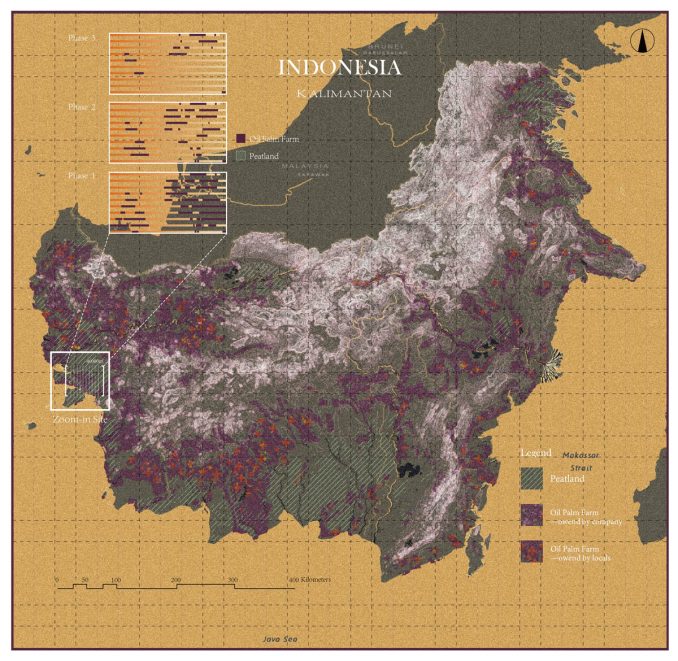
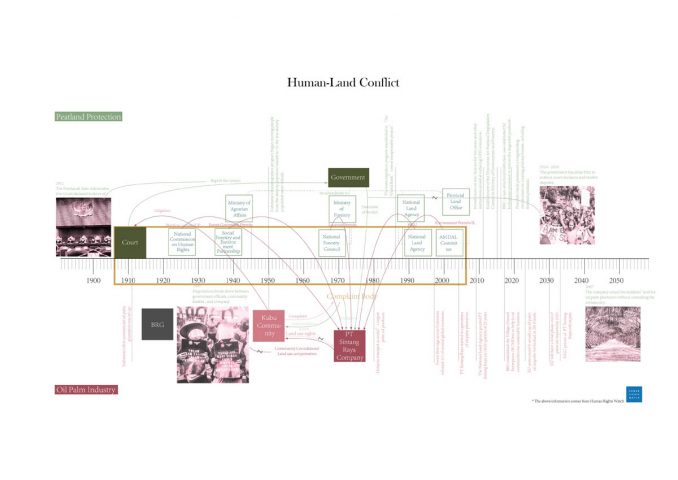
Indonesia is the world’s largest store of peat, covering 82% of its land area, and is also the largest producer of oil palm products. To reap more profits, some oil palm producers forcibly occupy land belonging to the people with little or no compensation resulting in hardship for the local population. With the state encouraging oil palm cultivation, a large number of peatlands have been burned and destroyed to develop oil palm plantations, releasing large amounts of carbon and associated harmful gases. As the water from the peatland plantations is drained, the underground peat is highly susceptible to insidious combustion.
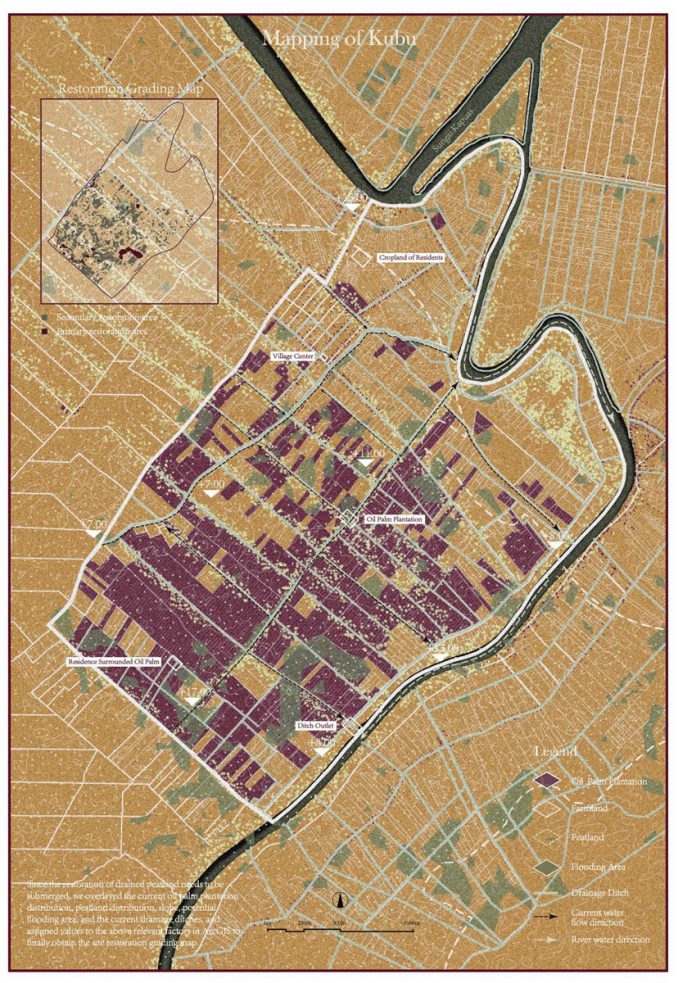
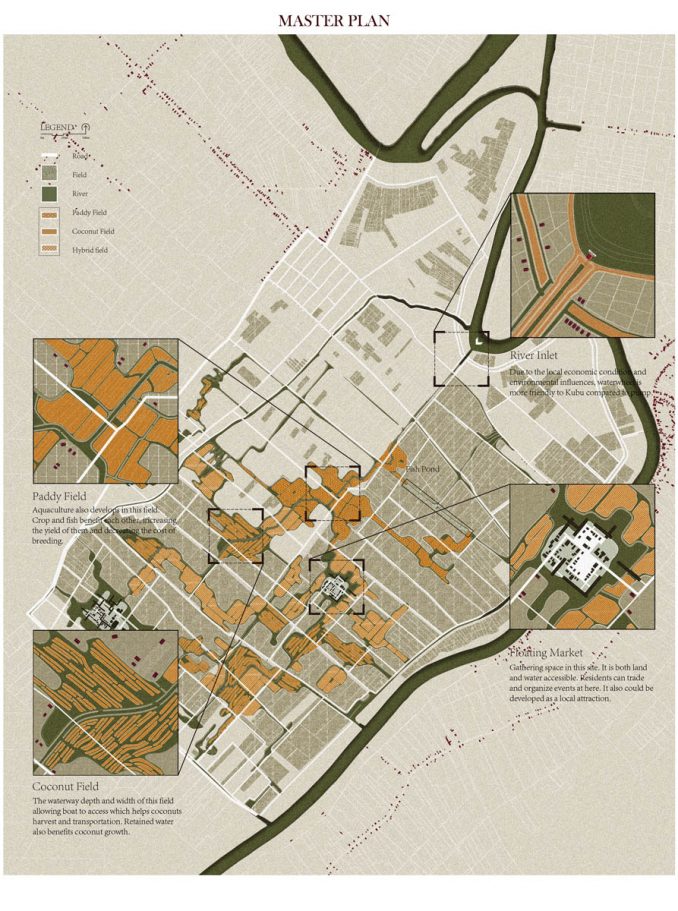
The project focuses on Kubu, a village where human rights are being squeezed for oil palm cultivation. The peatlands there are being drained and burned in large quantities while oil palm is being planted broadly. The project uses the expiration of the oil palm producers’ land concessions in 2033 as an opportunity to return the land occupied by the already widely distributed oil palm plantations to the locals and to attempt a sustainable development approach where restoration and production go hand in hand.
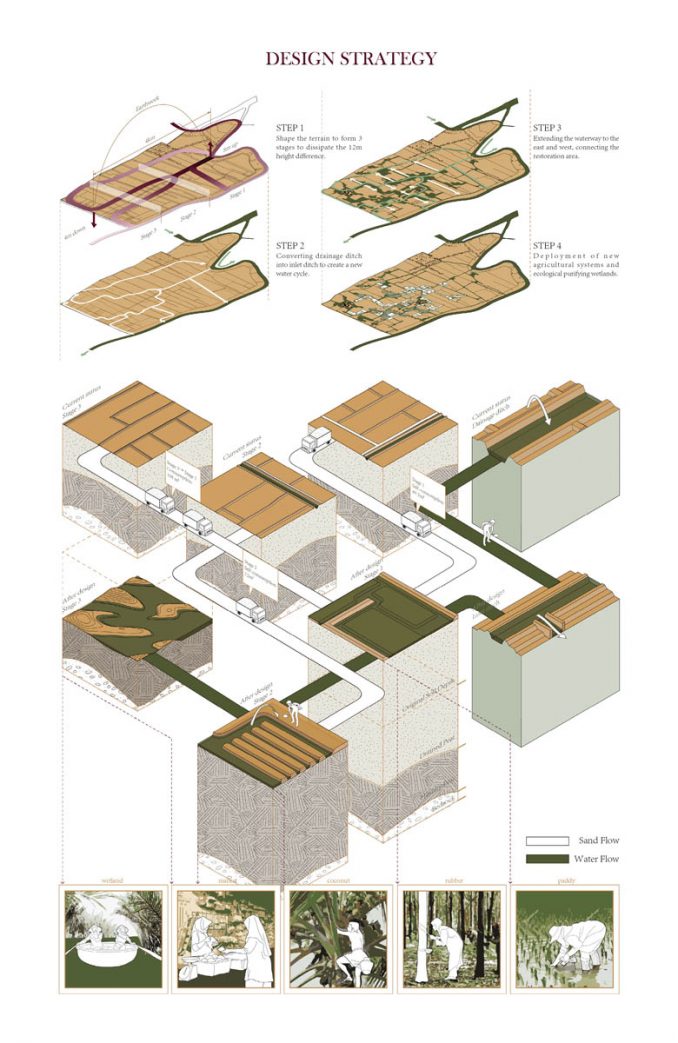
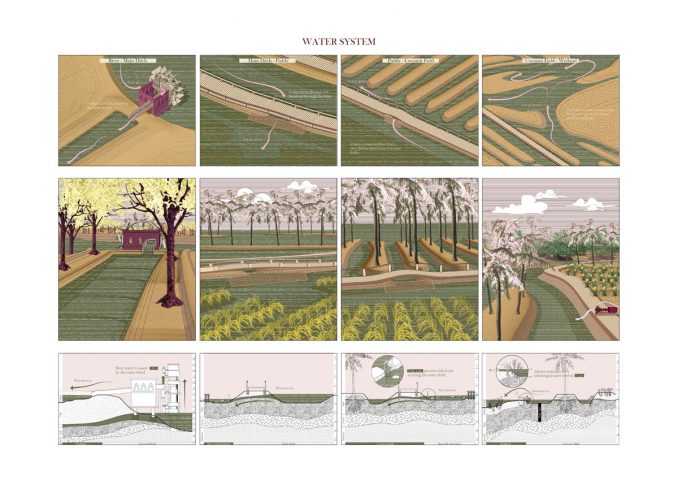
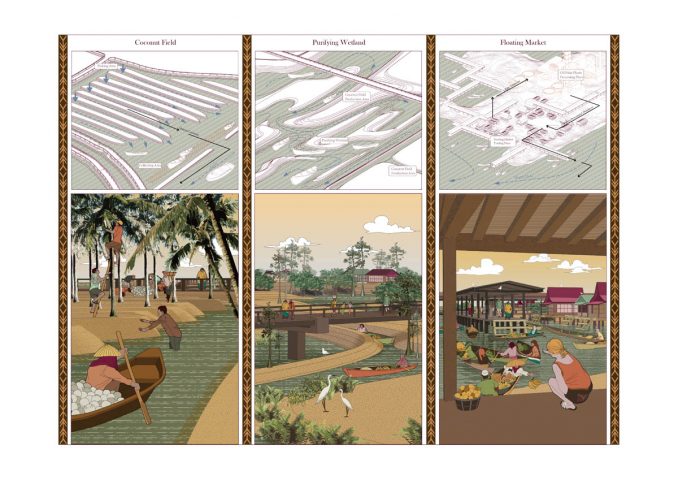
Through an elaborated vertical design, river water is brought into the restoration area to re-wet the peatland. By creating a slight height difference of 12m across the 4km site, the newly introduced water body will flow naturally by gravity throughout the whole site, gently and slowly transforming the now problematic ecological environment. The earthwork created in the process of creating the height difference will shape the site into three phases, each strategically restoring the unhealthy peat by accurately submerging it by 0.4m while developing sustainable and diverse agricultural activities on the healthy peat. A long-term plan is also proposed for the site’s current mono-industrial development.
Student Project | Post-Oil Palm Age The Rebirth of Indonesia Peatland | Yandong Hua & Fan Li & Xuan Liu
Students:
Yandong Hua, Beijing University of Civil Engineering and Architecture
Fan Li, Dalian Polytechnic University
Xuan Liu, Fujian Agriculture and Forestry University
